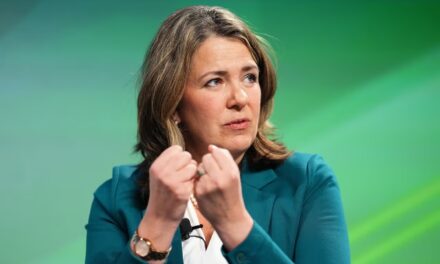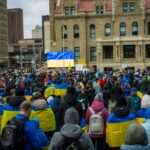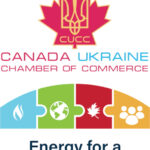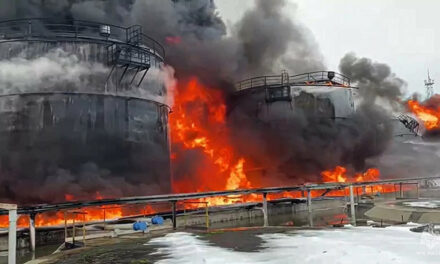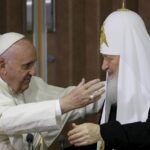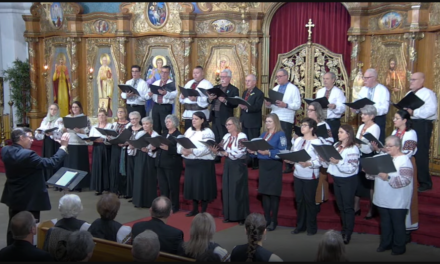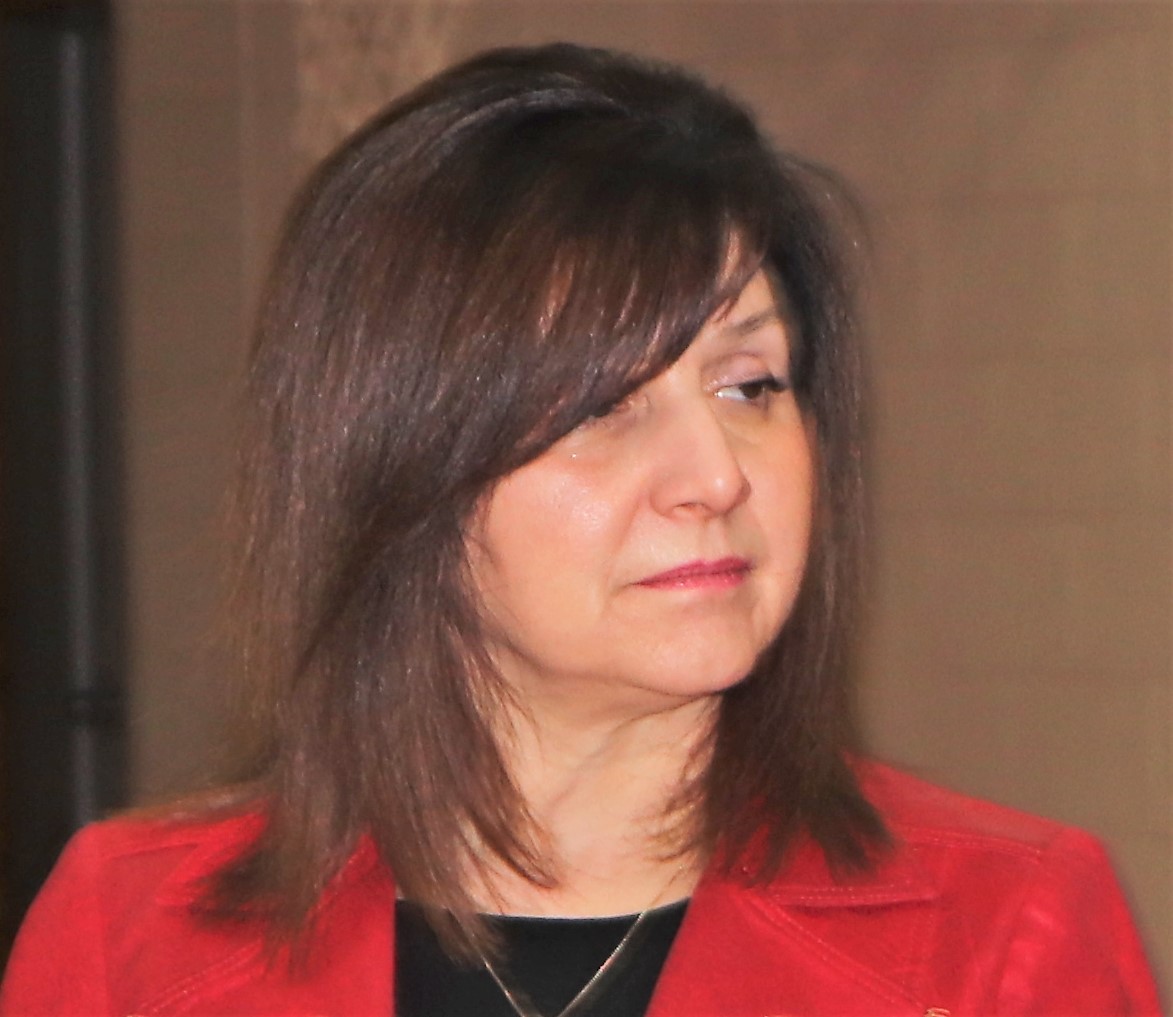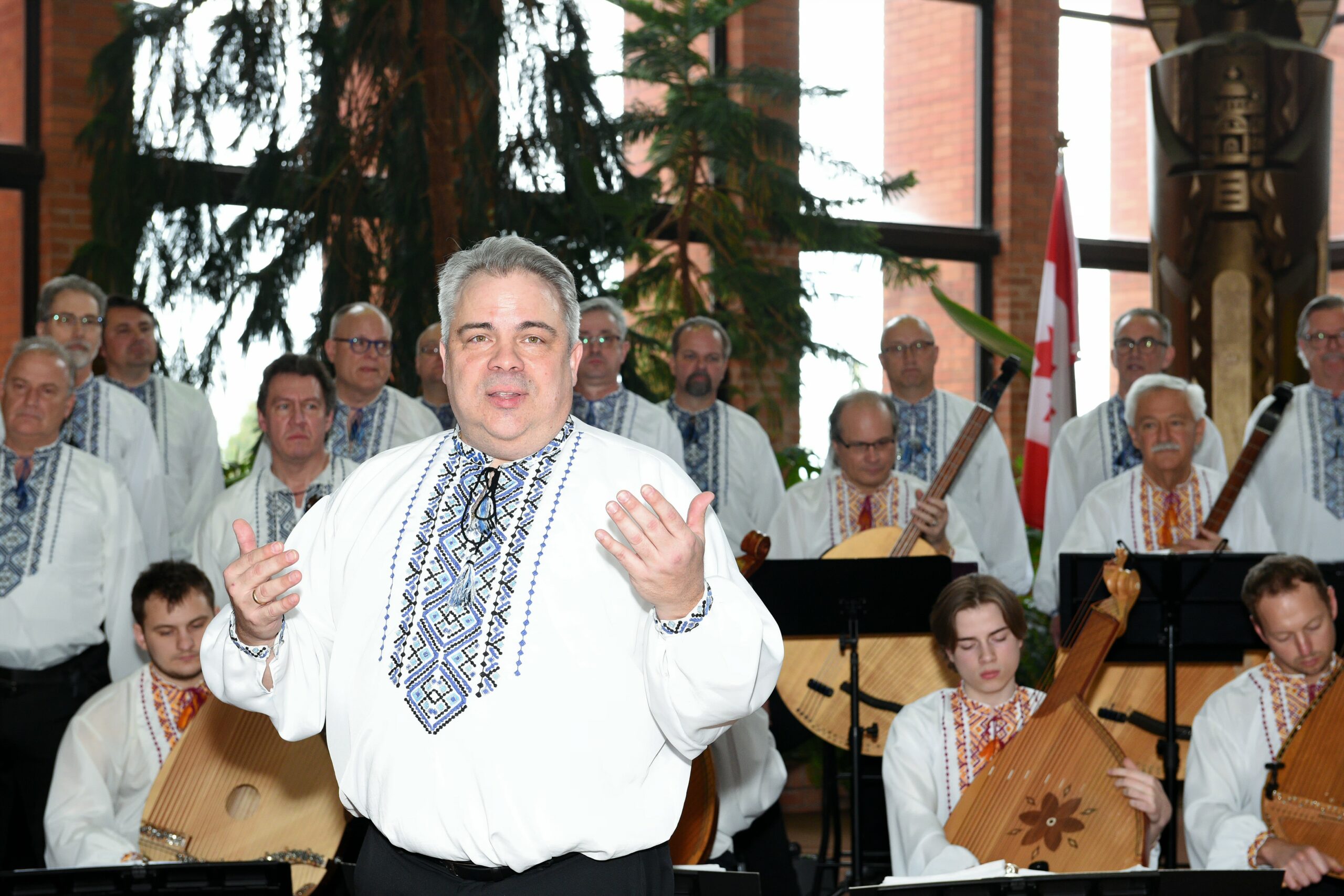Marco Levytsky, NP-UN National Affairs Editor.
The principal foreign policy achievement of President Volodymyr Zelenskyy’s first year in office was not capitulating to Russia and not abandoning Ukraine’s European aspirations, participants at a webinar sponsored by the Eurasia Center of the Atlantic Council were told, May 13.
“I think that Zelenskyy came out a lot better than we expected, not only because he didn’t cave in and capitulate as many of his detractors expected…but he stood his ground and he actually dared to question Putin in the presence of Macron and Merkel about some of the aspects of the Minsk agreement,” said Bohdan Nahaylo, a British-Ukrainian journalist and veteran Ukraine watcher based in Kyiv, referring to the December 9 summit in Paris aimed at finding a peaceful solution to the Donbas conflict. Zelenskyy met with Russian President Vladimir Putin, German President Angela Merkel and French President Emile Macron.
He criticized Zelenskyy for effectively delegating responsibility in peace talks to one person – Andriy Yermak, Head of the Presidential Administration, “who has become not only the main negotiator with Moscow but a foreign minister in all but name”.
“This is unsettling because this is not a professional diplomat, this is not somebody who has the experience to know all the tricks,” Nahaylo added.
Alyona Getmanchuk, director of the New Europe Center, noted that Zelenskyy has not challenged Ukraine’s European aspirations. This reflects the mood of the Ukrainian people who are willing to come out in support of Europe as they did with the 2014 Maidan, but not so for Russia.
One difference between Zelenskyy and his predecessor Petro Poroshenko is that Poroshenko led a search for foreign alliances but Zelenskyy is searching for foreign investments, although he has not achieved much in that regard.
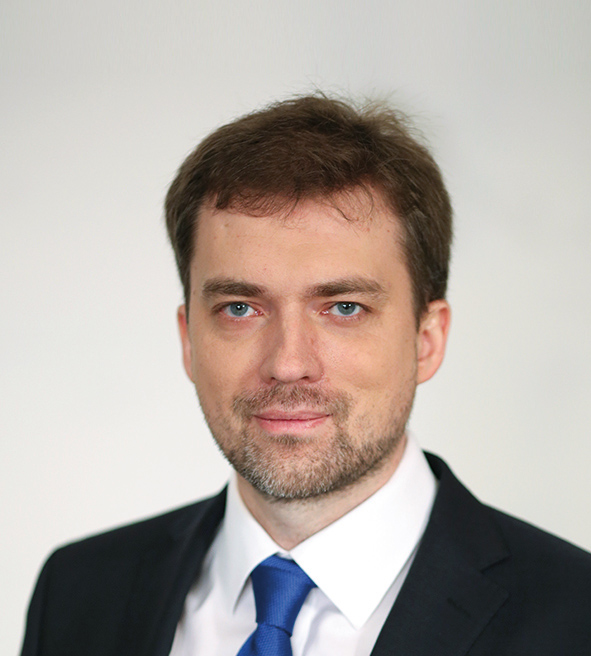
Andriy Zagorodnyuk
Andriy Zagorodnyuk, Ukraine’s Minister of Defense from August 29, 2019 to March 4, 2020, noted that in the long term, Zelenskyy is doing enough to keep Ukraine safe, but is dealing with a military power that is much stronger than Ukraine.
In the short term, he has overseen the biggest military budget in Ukraine’s history, has maintained an open-door policy for NATO integration, full support for the armed forces and has started looking at new strategic possibilities like Ukraine’s navy “which is encouraging”.
He commended Zelenskyy for putting a peace agenda on the table and demanding a resolution which is not allowing Russia to avoid the issue, making it clear that they are the ones sabotaging the process.
However, there are two major risks: one is that peace is very difficult to promise if you are not the aggressor; the other is that whatever the solution may be, Russia is going to try to manipulate it.
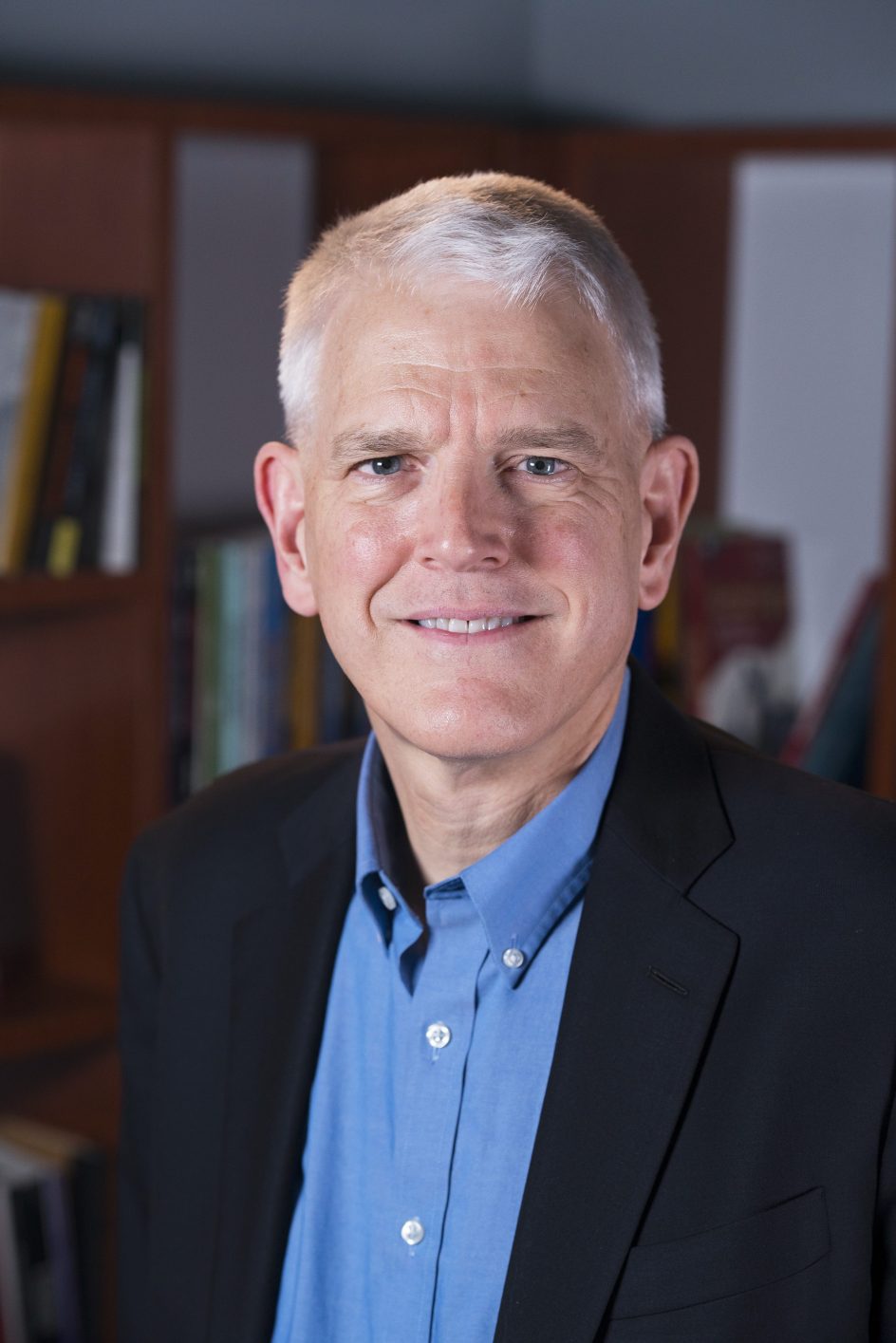
Steven Pifer
The fourth panelist, former U.S. Ambassador to Ukraine (1998-2000) Steven Pifer, was asked by moderator John Herbst, director of the Atlantic Council’s Eurasia Center, and also a former Ambassador to Ukraine (2003-2006) on how Zelenskyy has handled himself when pressed to investigate presumptive Democratic Presidential nominee Joe Biden and getting caught up in the impeachment process of President Donald Trump.
He responded that, upon assuming office, Zelenskyy found himself in a very difficult situation in regards to the United States which was not of Ukraine’s making, but entirely about U.S. politics.
What he had to contend with is that there were two U.S. policy directions regarding Ukraine. One, which was carried out by Ambassadors Marie Jovanovitch and William Taylor, “was a policy based upon official American interests”.
“It was designed to promote Ukraine’s values and independence… It was designed to bolster Ukraine’s ability to stand up to Russian aggression.”
The second approach, organized primarily by President Trump’s personal lawyer Rudy Giuliani, was not coordinated with the U.S. government and “not based upon American national interests”.
“It was based solely upon the president’s personal political interests and it was designed to get Ukraine to investigate old, discredited conspiracy theories,” Pifer said.
At the beginning, Zelenskyy and his inner circle engaged with Giuliani “which is perfectly understandable” if “you’re a brand-new president in Kyiv. You want to have that connection to the White House.”
In his September 25, 2019 press-conference with Trump, Zelenskyy handled himself very well in that he did not contradict President Trump, but on the other hand, did not launch an investigation, which would have alienated the Democrats in Congress.
“One of the strongest assets that Ukraine has in Washington, perhaps the strongest asset, is bipartisan political support from Democrats and Republicans. It goes all the way back to the early 1990s. And that’s a real asset for Ukraine. It’s promoted support for both economic reform assistance, but also military assistance for Ukraine.”
Zelenskyy has done a very admirable job “of not alienating the American president but also not disrupting the bipartisan support” and will have to continue doing so, said Pifer.
“In Donald Trump, you have someone who wants to believe that it was Ukraine, not Russia, that interfered in the presidential election of 2016. In doing so, Trump ignores the conclusions of the American intelligence community, ignores the Mueller Commission report and he ignores the Senate Intelligence Committee report, which is led by Republicans,” he added.
A number of questions were raised during the one-hour live session of the webinar, entitled “Walking a tight rope, one year of Zelenskyy’s foreign policy”, but, due to the time limitation, many more were addressed in a subsequent text posted on the Atlantic Council’s website. In many cases the topics overlapped.
One subject that was the focus of several questions was how the COVID-19 pandemic has affected Ukraine’s foreign policy.
Pifer said: “COVID-19 is taking its toll on the Russian economy, as is the fall in global energy prices. That said, it does not appear that the virus’s impact has, as of yet, caused the Kremlin to reassess its approach toward Ukraine, particularly toward settling the conflict in the Donbas. But that might still change.”
However: “COVID-19 will likely complicate Kyiv’s effort to pursue its foreign policy. Dealing with the virus and with its economic consequences is understandably going to take the time and attention of both Ukrainian leaders and leaders of Ukraine’s partners in the West. The temporary impact will be a lesser pace of dialogue and cooperation.”
Getmanchuk said there is no sign that Russia’s approach to Ukraine may change because of COVID-19.
“Even if the pandemic and the oil crisis are weakening Putin’s stance, the Kremlin is expecting that Ukraine’s position will be even weaker. We are witnessing Russia stick to its well-known position on the Donbas by, for example, imposing direct talks between Kyiv and the so-called ‘Republics’. Moreover, there is a threat that we may get an even more aggressive, hawkish Moscow if it does not reach its agenda regarding Donbas negotiations.”
But, Ukrainian diplomacy has been adapting to this new reality quite quickly and creatively. “For example, Ukraine’s Foreign Minister Dmytro Kuleba carried out the first virtual visit to Germany in Ukrainian diplomacy, Getmanchuck said. “As a result of COVID-19, Ukraine has received a chance to show that it can be a reliable contributor to transatlantic security. Ukraine’s Antonov planes, including the largest in the world ‘Mriya’ transport plane, are playing an essential role in delivering medical equipment from China to NATO member states during the pandemic. As a sign of solidarity, Ukraine has provided its assistance to Italy despite criticism from Zelenskyy’s opponents.”
Nahaylo said, “there are no definite new results on the ground to point to. Cross-contact line shelling and sniper fire continue, and casualties continue to grow. We do not know if (chief Russian negotiator) Dmitry Kozak’s recent talks behind closed doors in Berlin have signaled any new flexibility in Moscow’s stance.”
Zagorodnyuk said the biggest challenge will be the fact that every country will have a substantially increased amount of domestic issues while recovering from the consequences of COVID-19. “That will lead to more diversion from foreign policy issues, which may work against Ukraine. Russia will be actively lobbying for the release of sanctions, demonstratively ‘helping’ countries to overcome COVID-19, offering deals of various kinds, which will impact the overall foreign relations context.”
Asked whether due to COVID-19, could we see an upgraded relationship between Ukraine and China, Getmanchuk responded that we are seeing the strengthening of Chinese “soft power” in Ukraine. “According to recent opinion polls, 34 per cent of Ukrainians believe that China is a country that can help Ukraine be the most effective in its fight against the coronavirus pandemic. At the same time, only 10 per cent chose the European Union and 8.7 per cent named the United States.”
Answering the question is there any strategy that will end the Russo-Ukrainian war on terms favorable to Ukraine, Pifer said: “Zelenskyy can take steps to bolster Ukraine’s position vis-a-vis Russia, such as pursuing dramatic reforms that create a more open, competitive, and growing economy. That will strengthen both Ukraine’s political and military standing. But, the Kremlin gets a vote on when to end the war that Russia has inflicted on Ukraine. As before, the issue remains what can Ukraine and its Western supporters do to change the Kremlin’s cost-benefit calculation.”
Nahaylo agreed, stating: “The only strategy of this sort is to put Ukraine in order by pursuing a clear and determined reformist course, one that will ensure an independent judiciary, the rule of law, law and order, and combating corruption.”
Zagorodnyuk said there are several scenarios and strategies in place. “Maintaining sanctions, strengthening military capabilities, enhancing resilience in the Joint Forces Operation zone, applying pressure on Russia to reach an agreement, demanding a complete ceasefire, proceeding with further prisoner of war exchanges, requesting the delivery of all points of the Minsk agreement which are currently breached by Russia, strengthening diplomatic relations, and developing Ukraine domestically as a free, democratic, and prosperous nation — all of that needs to happen to win the war.”
On the question of whether the separatist republics should be included in the peace process, Nahaylo noted that Russia is insisting that Kyiv deals directly with its proxies in Donetsk and Luhansk in order to avoid its responsibility for imposing and propping them up.
“Russia is probably looking for a face-saving arrangement which Ukraine fears will produce a Trojan Horse to weaken it from within. It is important for Kyiv to counter Moscow’s claims that the latter’s puppets legitimately represent occupied territories that have been in effect ethnically cleansed of their ‘Ukrainian’ inhabitants. Those forced to flee by Russian arms and intolerance need to be heard loudly and clearly.”
Zagorodnyuk said there are no such things as the Luhansk People’s Republic and the Donetsk People’s Republic. “They are Russian proxies and came to power by breaching all imaginable laws and were funded and equipped by Russia. There is no way any process can result in a constructive outcome if we imagine anyone changing that approach.”
Share on Social Media


